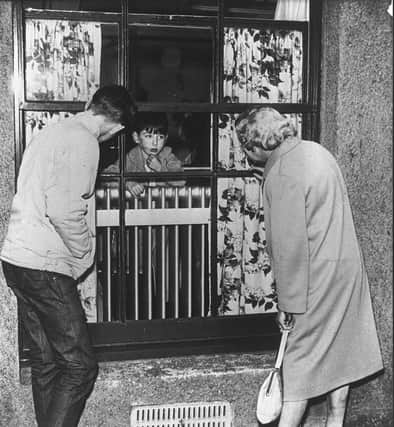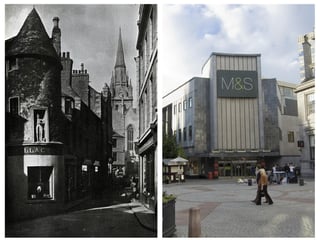When a can of corned beef from South America infected a Scottish city with typhoid.


The typhoid outbreak in Aberdeen in the summer of 1964 had a lasting, damaging effect on the economy of a city that was a popular tourist destination at the time.
Aberdeen was virtually isolated with Dr Ian MacQueen, the city’s Medical Officer for Health, appearing on television twice daily to update the nation about the outbreak with the disease making itself into more than 300 homes.
Advertisement
Hide AdAdvertisement
Hide AdPatients were isolated in three different hospitals in the city with patients, including many children, only seeing visitors through a glass window. Some remained in isolation for five weeks.
Schools and swimming pools were closed down along with youth clubs and sports clubs. Buses into the city ran barely without a passenger on board and milkmen were too scared to go to front doors. There were anecdotal reports of hotels and caravan parks not taking bookings from people from Aberdeen.
Three fatalities were recorded in Aberdeen, despite the level of outbreak.
The first patient fell ill on started on May 12 and was admitted to hospital four days later.
Within 24 hours of the first positive test results, the outbreak was traced to a branch of William Low supermarket in the city.
The overwhelmimg majority of 41 patients admitted in the first three days of the confirmed outbreak remembered eating cold meat bought from the shop.
Of these, three quarters said they had eaten sliced corned beef.
Testing also showed that an organism found in the first isolated patients was a variety common in South America and Spain, but virtually unknown in Great Britain.
Advertisement
Hide AdAdvertisement
Hide AdThen, more and more cases emerged among patients who had eaten other cold meats bought from the supermarket with it then becoming apparent that the slicing machine used for the corned beef had become infected.
To make matters worse, the meats had been displayed together in a south facing window of the supermarket during the day – and then stored together at night.
“At the end of that working day a the meats remaining were place in a tray and stored overnight in a refrigerator,” a report of inquiry proceedings later said.
“There is no doubt that at this stage the contaminaton would have spread to some of the other meats and such contamination would have the opportunity to go on the following day,” it added.
As a result, it is believed the infection was in the shop for more than a fortnight.
Food hygiene regulations at the time did not specifically cover displays of meat for retail sale, so the supermarket was not regarded as negligent.
The Departmental Committee of Inquiry was in no doubt that the source of the infection was a can of corned beef from a cannery in Rosario in the Argentine.
The water used for cooling the cans of meat after sterilisation was unchlorinated river water, it later emerged, with it suspected a small amount of water entered one of the cans through a puncture.
Advertisement
Hide AdAdvertisement
Hide AdAberdeen at the time was a popular tourist destinatoin with the outbreak hitting the city hard with Aberdonians and holidaymakers told to avoid swimming or paddling in the sea
Plans were quickly drawn up to boost Aberdeen’s image.
A briefing to the Scottish Secretary dated June 15 suggests a visit by the Queen to mark the end of the epidemic and a note scribbled in the margin said: “Splendid if it can be done without being too obviously contrived."
The Queen visited at the end of June with the visit A suggested visit by the Prime Minister was turned down because it might over-dramatise the situation, but ministers were enthusiastic about a suggestion that Sir Billy Butlin should announce a renewed welcome to Aberdonians.
